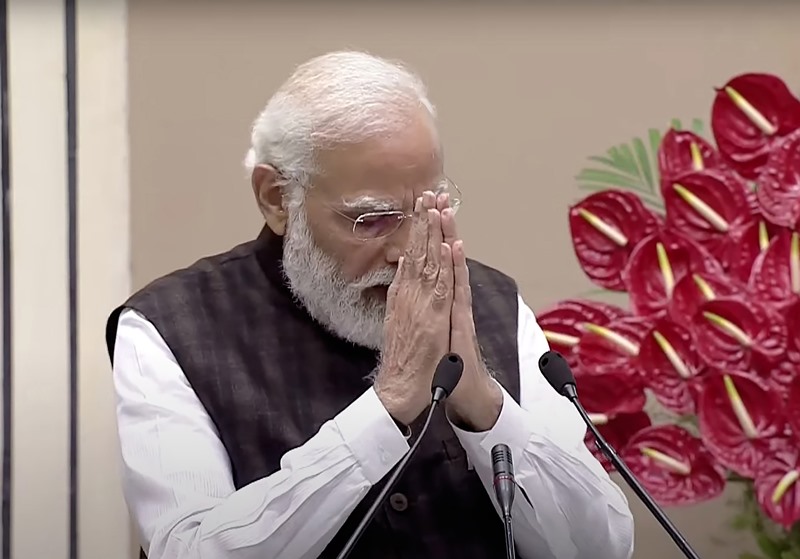New Delhi: President Droupadi Murmu, in her address to the 18th Lok Sabha on Thursday, reiterated the BJP’s stance on the Emergency imposed by Indira Gandhi in 1975.
Speaking to a joint session of the Houses, Murmu highlighted that during the drafting of the Constitution, many global powers doubted India’s success. She noted that even after the Constitution came into effect, it faced several challenges.
“Today is June 27th. The imposition of Emergency on June 25, 1975, was the darkest chapter in our history, a direct assault on the Constitution. The entire nation was outraged, but it ultimately triumphed over these unconstitutional forces because the traditions of our republic are deeply rooted in India,” she stated.
Addressing recent issues of irregularities and alleged fraud in the NEET and UGC NET examinations, Murmu emphasized the need for sanctity and transparency in government recruitments and examinations. “If examinations are obstructed for any reason, it is unacceptable. The government is committed to conducting fair investigations and ensuring stringent punishment for those guilty of paper leaks,” she said. She added that previous incidents of paper leaks necessitate rising above partisan politics to implement strong national measures. Parliament has enacted a robust law against paper leaks, and the government is working on examination process reforms.
Murmu began her address by congratulating the newly elected Speaker of the Lok Sabha, Om Birla, and the Election Commission for the successful conduct of the Lok Sabha elections. She also congratulated the newly elected parliamentarians.
Commending the NDA government for securing a third term, she remarked that it reflects the people’s confidence in their governance. “This has happened after six decades. The people have shown trust in my government for the third time. They believe only my government can fulfill their aspirations,” she said.
Regarding voter turnout in Kashmir, she noted that several voting records were broken, which served as a strong response to India’s adversaries.
Discussing the priorities of the newly formed government, Murmu stated that the Union Budget would be a forward-looking document with accelerated reforms. She mentioned initiatives for agricultural storage and increased MSP for farm produce. “The resolve to Reform, Perform, and Transform has made India the fastest-growing economy in the world,” she said.
She also spoke about the Ayushman Bharat health scheme, stating that free health services under the Ayushman Bharat-Pradhan Mantri Jan Arogya Yojana (AB-PMJAY) are being provided to 55 crore beneficiaries. “Additionally, the government will now extend free treatment benefits to all elderly above 70 years under the Ayushman Bharat Yojana,” she announced. The opening of 25,000 Jan Aushadhi Kendras nationwide is progressing rapidly, she added.
Hinting at the violence in Manipur without directly naming the state, Murmu mentioned that the government is working for lasting peace in the North East, addressing several longstanding issues over the past decade. She said steps are being taken to foster development in the region, and the government plans to revoke the controversial AFSPA, which grants special powers to the army.
President Murmu arrived at Parliament accompanied by a grand procession and was welcomed by Vice President Jagdeep Dhankhar, Prime Minister Narendra Modi, and Lok Sabha Speaker Om Birla. She received a guard of honor on the Parliament’s lawns and was escorted to the Lok Sabha chamber by Dhankhar, Modi, Birla, and Parliamentary Affairs Minister Kiren Rijiju. The dignitaries welcomed the President at the Parliament building’s Gaja Dwar and proceeded to the Lok Sabha chamber, led by an officer carrying the Sengol reverentially.






